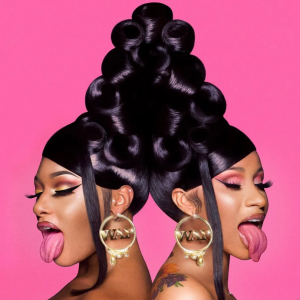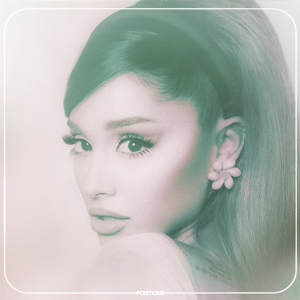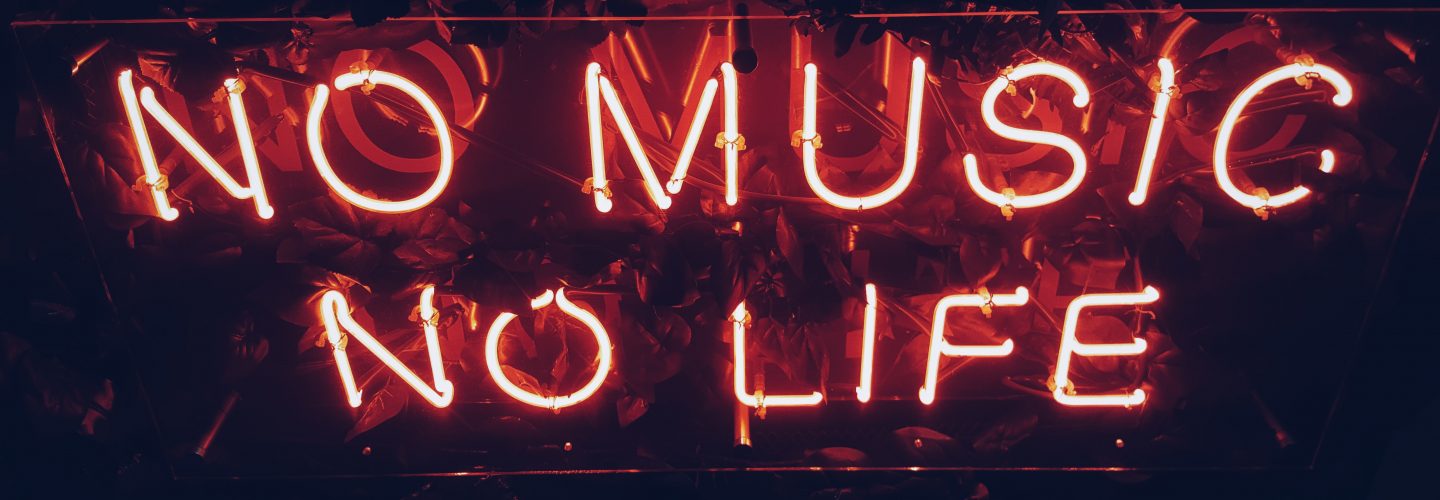In 2020, we’ve witnessed the release of many new songs from popular female artists. While the content of these songs has certainly varied, one theme that has been particularly prevalent is the expression of female sexual pleasure and desire. Two artists whose new music exemplifies this theme are Ariana Grande with her song “34+ 35” and Cardi B and Megan Thee Stallion with their song “WAP”.


Backlash Against Female Artists Singing about Sex
While “34 +35” and “WAP” have both topped billboard charts, there has been tremendous backlash against the artists. Upon the release of “WAP”, the twitter sphere was up in arms. People were outraged, offended, and very outspoken about how they felt. One political candidate, James P. Bradley , even tweeted “The #WAP (which i heard accidentally) made me want to pour holy water in my ears and I feel sorry for future girls if this is their role model!”
“WAP” also garnered tremendous attention on other media platforms, such as The Ben Shapiro Show. During his live radio show, Shapiro dissected the song line-by-line, reciting a censored version of it. He then went on to condemn the song further saying “This is what feminists fought for … This is what the feminist movement was all about, and if you say anything differently it’s ’cause you’re a misogynist, see?”1Mamo, Heran. “Ben Shapiro Reads the Censored Lyrics to Cardi B and Megan Thee Stallion’s ‘WAP’ & He Can’t Handle It.” Billboard, August 11, 2020. https://www.billboard.com/articles/columns/hip-hop/9432034/ben-shapiro-reads-censored-wap-lyrics-cardi-b-megan-thee-stallion Rather than accepting the song as a celebration of two black women celebrating their sexuality, Shapiro and other political commentators have viewed it as a larger social issue.
Villainization of Masculine Women
Despite modern strides in breaking down traditional expectations of women, the backlash against “WAP” demonstrates that gendered norms still persist. While men are often associated with traits that signify strength, dominance, and power, women are identified as soft, nurturing, and submissive. The indicated division in expectation can cause condemnation when people venture outside of their conventional roles. This can especially be seen when women, like Cardi B and Megan Thee Stallion, are villainized for expressing their sexuality and strength in music.
Given that performance is often a depiction of real life, the villainization of women is also exhibited in the characters of musicals and operas . In Hochstuhl’s avid listener post about female Disney villains, he points out that “the music associated with these characters tells us how villainous they are.” 2Hochstuhl, Christopher R. “Poor Unfortunate Gender Stereotypes: Gender Transgression and Masculinity in the Music of Female Disney Villains.” The Avid Listener, July 27, 2020. https://theavidlistenerblog.com/2020/07/27/poor-unfortunate-gender-stereotypes-gender-transgression-and-masculinity-in-the-music-of-female-disney-villains/ While Disney princesses exemplify a “socially conventional ultra-feminine persona” with “soft, gentle, and fair” music, female villains are “assigned music typically associated with male characters.” In The Little Mermaid, Hochstuhl explains that “Ursula’s voice parallels that of Disney’s male characters in qualities of range and speech-like style.” This is in stark contrast to Ariel who has a “bright and nasal belted voice.”
The shaming of women for performing masculine traits can also be seen in Bizet’s Opera, Carmen. Because of the “strength of her unrepentant sexuality”, Susan McClarly explains that the audience is encouraged to believe that Don Jose was “forced” to kill Carmen.3McClarly, Susan. “Sexual Politics in Classical Music.” Chapter. In Feminine Endings, 56–67. Minneapolis, MN: University of Minnesota Press, 1991. Because Ursula and Carmen are framed as evil, the audience is positioned to assume that they are deserving of punishment. Just as these characters are penalized for their masculine behavior, female artists today are condemned when they exert their strength and sing about their sexuality.
Comparing the Criticism of “WAP” and “34 +35”
When comparing criticism received from Ariana Grande and Cardi B, it can be reasonably assumed that both artists would receive equal levels of condemnation. After all, two songs created by women singing about sex should garner similar results. As evidenced by countless tweets from politicians bashing Cardi B and Megan Thee Stallion, it’s fair to say that “WAP” received significant hate. However, when analyzing public reaction to “34 +35”, there was little to no backlash. While Cardi B and Megan Thee Stallion have been villainized and called bad role models for young girls, Ariana Grande has received limited criticism.
The question thus arises of how two songs (both created by female artists with explicit lyrics about sex) can receive such different public responses. One explanation for this variance is the difference in musicality of the songs. While both songs express female sexual desire, “WAP” challenges gender norms through the inclusion of traditionally masculine instruments as well as other masculine signifiers. This contrasts “34 + 35″ which incorporates traditionally female instruments and sounds.
Comparing the Musicality of “WAP” and “34 +35”
While the lyrics of “WAP” are obviously very explicit, the lyrics aren’t the only thing that contribute to the controversy associated with it. The pounding bass, asymmetrical tempo, and the fact that the artists rap instead of sing all challenge expectations of how women are supposed to sound. As pointed out by Hochstuhl’s description of Ursula’s music, women that sing in lower, “speech-based” styles do not fit the conventional female mold. 4Hochstuhl, Christopher R. “Poor Unfortunate Gender Stereotypes: Gender Transgression and Masculinity in the Music of Female Disney Villains.” The Avid Listener, July 27, 2020. https://theavidlistenerblog.com/2020/07/27/poor-unfortunate-gender-stereotypes-gender-transgression-and-masculinity-in-the-music-of-female-disney-villains/ Rather than sounding light and delicate, these women embody sounds that have been traditionally labeled as masculine.
Another element of the song that conjures up disapproval is the inclusion of Frank Ski’s “There’s some whore’s in this house.” As pointed out by Zalika U. Ibaorimi, an African Diaspora studies scholar at the University of Texas at Austin, “Cardi B raps from a specific perspective.” 5Felton, Lena. “Some Are Criticizing Cardi B’s ‘WAP’ for Being ‘Vulgar.’ Her Fans Say to Get over It.” https://www.thelily.com. The Lily, August 12, 2020. https://www.thelily.com/some-are-criticizing-cardi-bs-wap-her-fans-say-to-get-over-it/. The artist has been vocal about her experience as a stripper, demonstrating that it isn’t a profession women should be ashamed of. She also announced that she had an OnlyFans account where she included additional footage from the “WAP” music video. While selling sex is often looked down upon, Cardi B indicates that she isn’t phased by being slut shamed. She openly talks her own sexual pleasure as well as the liberation that comes from it. By including Frank Ski’s “There’s some whore’s in this house”, she embraces the title and reclaims it as her own. As stated by Ibaorimi, “It’s interesting to see hip-hop go through this transition where we’re rejecting these patriarchal figures,” she says. “We’re letting the ‘ho’ speak.” 6Felton, Lena. “Some Are Criticizing Cardi B’s ‘WAP’ for Being ‘Vulgar.’ Her Fans Say to Get over It.” https://www.thelily.com. The Lily, August 12, 2020. https://www.thelily.com/some-are-criticizing-cardi-bs-wap-her-fans-say-to-get-over-it/.
https://www.youtube.com/watch?v=-IHUl8CwCvI
In contrast to WAP , Ariana Grande’s “34 +35” embodies a much different vibe. While Ariana is explicitly singing about sex , just like Cardi B and Megan Thee Stallion, there are some underlying differences that make her appear to sound more feminine. For one, the fact that she sings in a higher pitched, softer voice makes her sound sweet and innocent. Additionally, the inclusion of traditionally feminine instruments, such as the violin, give the song a warm timbre. This warmness produces a sense of intimacy, making the song feel more romantic.
The intimate feel as well as the dark lighting in the music video support a more conventional view of sex. As explained in Solie’s piece about “girling”, “the sociology of manners and of civilized or ‘respectable’ behavior rests crucially on the development of a sensibility of ‘private things’ and of personal, intimate behaviors.”7Solie, Ruth A. “Girling at the Parlor Piano,” Music in Other Words: Victorian Conversations. Berkeley, CA: University of California Press, 2004. While the “sensibility of private things” is discussed in relation to family dynamics, sex could be considered the ultimate “private thing” between a husband and wife. Because women are expected to retain their virginity until marriage, any female sexual activity outside the home could be considered sexually deviant. By producing a romantic environment in her video , Grande reproduces a more “respectable” rendition of sexual intimacy. This contrasts against “WAP” where two women casually sing about sex.
The Role of Appearance
Another factor contributing to the variance in critique is the difference in the artists’ appearance. While Ariana Grande is known for her pony-tail and doe-eyes, Cardi B and Megan Thee Stallion are noted to wear big jewelry and colorful makeup. Although precious jewels and makeup have historically been seen as a measure of wealth, modern-day standards associate big jewelry and excessive makeup with promiscuity, arguing that the bigger the hoop the bigger the hoe. While Ariana is praised and respected for her appearance, Carbi B and Megan Thee Stallion receive more hate.


The physical embodiment of conventional femininity (or lack there of) can also be seen in Disney Film. As explained by Hochstuhl, Ursula’s bright eyeshadow and lipstick embody an “exaggerated caricature of performed femininity.” This exaggeration of femininity is contrasted with the physicality of Disney Princesses who have a “pure white complexion.”8Hochstuhl, Christopher R. “Poor Unfortunate Gender Stereotypes: Gender Transgression and Masculinity in the Music of Female Disney Villains.” The Avid Listener, July 27, 2020. https://theavidlistenerblog.com/2020/07/27/poor-unfortunate-gender-stereotypes-gender-transgression-and-masculinity-in-the-music-of-female-disney-villains/ While princesses are seen as innocent and natural, villains are labeled as vain and tainted. In this sense, Cardi B and Megan Thee Stallion are to Ursula as Ariana Grande is to Ariel or Snow White.
Wrapping Up and Moving Forward
Although these artists are all singing about sex, two are unfairly criticized for “setting the female gender back”. While the musicality of these songs demonstrate how the music itself plays a large role in public reaction, the artists’ appearance also contribute to the difference in reception. Although these women may look different, one is not more deserving of respect than another. Regardless of their jewelry preferences or beauty routine, all three of these artists should be allowed to express their sexuality and sing about what they want to. In order to start breaking down the gendered norms that produce this inequity, we must normalize and praise women for singing about sex, just as we would with men.
Word Count: 1654
References
| ↑1 | Mamo, Heran. “Ben Shapiro Reads the Censored Lyrics to Cardi B and Megan Thee Stallion’s ‘WAP’ & He Can’t Handle It.” Billboard, August 11, 2020. https://www.billboard.com/articles/columns/hip-hop/9432034/ben-shapiro-reads-censored-wap-lyrics-cardi-b-megan-thee-stallion |
|---|---|
| ↑2, ↑4, ↑8 | Hochstuhl, Christopher R. “Poor Unfortunate Gender Stereotypes: Gender Transgression and Masculinity in the Music of Female Disney Villains.” The Avid Listener, July 27, 2020. https://theavidlistenerblog.com/2020/07/27/poor-unfortunate-gender-stereotypes-gender-transgression-and-masculinity-in-the-music-of-female-disney-villains/ |
| ↑3 | McClarly, Susan. “Sexual Politics in Classical Music.” Chapter. In Feminine Endings, 56–67. Minneapolis, MN: University of Minnesota Press, 1991. |
| ↑5, ↑6 | Felton, Lena. “Some Are Criticizing Cardi B’s ‘WAP’ for Being ‘Vulgar.’ Her Fans Say to Get over It.” https://www.thelily.com. The Lily, August 12, 2020. https://www.thelily.com/some-are-criticizing-cardi-bs-wap-her-fans-say-to-get-over-it/. |
| ↑7 | Solie, Ruth A. “Girling at the Parlor Piano,” Music in Other Words: Victorian Conversations. Berkeley, CA: University of California Press, 2004. |
